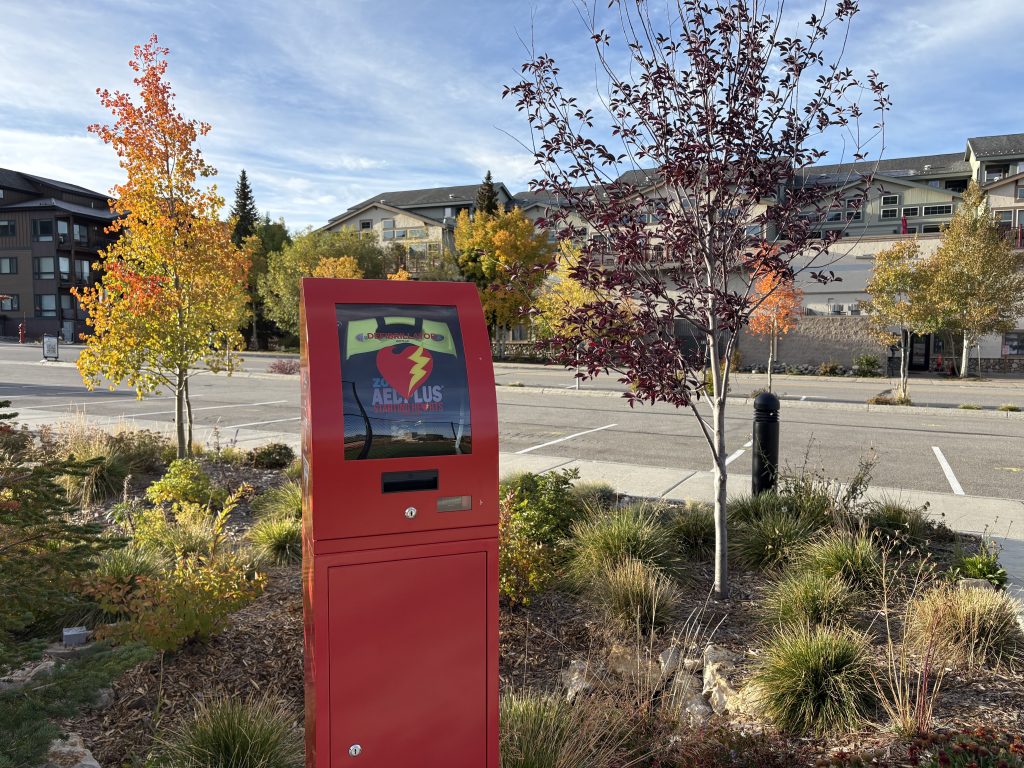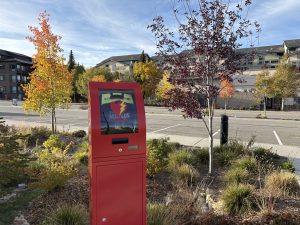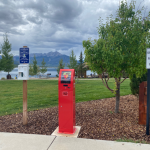Summit County public safety agencies integrate new app to help save cardiac arrest victims

Kyle McCabe/Summit Daily News
As part of its mission to improve outcomes for victims of sudden cardiac arrest, Starting Hearts recently announced the implementation of a new app in Summit County that helps people experiencing cardiac arrest get assistance faster.
PulsePoint Respond works with local public safety agencies to provide 911 updates to users. The main function is to alert users who identify themselves as being CPR trained when there is a sudden cardiac arrest event near them.
Jackie Christiansen, the director of Starting Hearts Summit County, said brain damage can start four minutes after someone experiences sudden cardiac arrest. In Summit County, emergency medical services respond in about five to seven minutes. PulsePoint Respond, she said, helps people in the vicinity start CPR sooner.
“We all want early intervention, as it’s called, or bystander intervention,” Christiansen said. “So we’re encouraging the community to do something and to give hands-only CPR.”
The PulsePoint Foundation, a nonprofit organization, has implemented its Respond app in over 5,400 communities in the U.S., according to its website. Christiansen said communities with the app see higher sudden cardiac arrest survival rates.
“There’s more bystander intervention,” Christiansen said. “There’s more people that give CPR, basically, also there’s more people that use AEDs.”
The app is only available in areas where local public safety agencies have adopted it, which Summit County’s agencies recently did. Another app, PulsePoint AED, keeps a database of AEDs in communities across the country.
PulsePoint AED users can report AEDs in their community to the app, and local public safety officials or nonprofits like Starting Hearts can verify the information. The AEDs reported on PulsePoint AED are visible on PulsePoint Respond.
Implementing PulsePoint Respond cost about $18,000, Christiansen said, and it has an annual cost of around $8,000. Breckenridge Grand Vacations’ philanthropic organization, BGV Gives, and CommonSpirit Health provided grants to implement the app.
Christiansen said the next renewal will be in July 2026, and several organizations have expressed interest in helping cover the cost going forward.
When someone downloads PulsePoint Respond, they can identify themselves as being trained in CPR. If they do, they can allow the app to notify them if there is a sudden cardiac arrest incident “within walking distance,” according to the nonprofit’s website. The app gets information about those events through local 911 dispatch, meaning users get the notification when first responders do.
Christiansen said someone responding to an alert on the app can also see nearby AEDs and grab one if it is on the way to the incident or ask another bystander to retrieve it.
“It’s just that window of time where there’s nobody there,” Christiansen said. “What EMS really don’t look forward to (is) arriving on scene and seeing someone on the ground having cardiac arrest and no one is doing anything.”
Anyone can sign up for the PulsePoint Respond app’s notifications for sudden cardiac arrest incidents, Christiansen said, not just those with CPR training. She said people have asked her if Starting Hearts wants “just anyone” to sign up to be notified, and she said “yes” because having someone doing something to help a victim is better than nobody doing anything.
“If we disqualify anyone, then it could mean that that person might not live because someone that could have helped decided that they weren’t qualified,” Christiansen said. “Anyone who feels competent in an emergency situation like that can sign up and get notified.”
Christiansen also pointed out that untrained people can still use AEDs, which she said give users clear instructions for use. Some units can even tell if their pads are placed correctly and provide the user feedback, she said.
Someone untrained in CPR could receive instructions from a 911 dispatcher, Christiansen said, and perform the maneuver until EMS arrives if nobody else is around to help.
Starting Hearts first tried to bring PulsePoint Respond to Summit County several years ago, Christiansen said, and while the county commissioners were supportive, the project did not move forward.
“It wasn’t good timing because 911 dispatch was short staffed at the time and a little overwhelmed with COVID,” Christiansen said.
Christiansen said “it all seemed to come together” this year as Starting Hearts worked with local public safety agencies to push for and implement the app. She said Michael Berry, the county 911 dispatch director, supported the initiative.
“He came from California, where he was in two different cities where they had implemented PulsePoint,” Christiansen said. “He was very familiar with it.”
The PulsePoint Respond app also shows information about other 911 calls, like traffic accidents, fires, gas leaks and more.
Christiansen said the PulsePoint AED app allows people to submit AED locations because they can be placed by many entities, from public safety agencies and towns to private businesses and citizens. Some people even have them in their homes, she said.
“There’s well over 300 — probably around 350 in Summit County — AEDs that are active,” Christiansen said. “I would say 300 different sources placed those.”

Support Local Journalism

Support Local Journalism
As a Summit Daily News reader, you make our work possible.
Summit Daily is embarking on a multiyear project to digitize its archives going back to 1989 and make them available to the public in partnership with the Colorado Historic Newspapers Collection. The full project is expected to cost about $165,000. All donations made in 2023 will go directly toward this project.
Every contribution, no matter the size, will make a difference.









